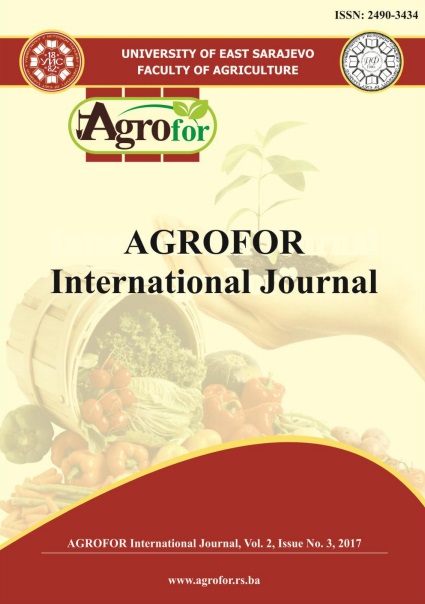BIODIGESTER BALES: METHOD FOR THE ECOLOGICAL MANAGEMENT OF ORGANIC RESIDUES
DOI:
https://doi.org/10.7251/AGRENG1703108CAbstract
The environmental and public health problems by inadequate management of
organic waste continue to worsen in many parts of the world. The high rates of
waste generation associated with deficiencies in collection and treatment services
are a source of negative impacts; the inadequate disposition of the material bound
to an incorrect separation causes proliferation of pest species, bad smells, toxic
gases formation, fumes and dust that contribute to the contamination of the
ecosystems. The cause of these problems that alter the quality of the environment
and the health of the people is certainly of anthropic origin, because in nature, the
recycling of nutrients is an essential function for life. In view of this scenario, it is
proposed the implementation of an ecological method, alternative to traditional
compost, which has been proven effective by developing it in higher education
institutions and university. Among the benefits offered is the management of tons
of organic material in small spaces, the sustainable use of waste derived from food
consumed in schools, among others. Studies for the analysis and evaluation of the
physicochemical and nutritional quality of the organic fertilizer obtained in
different climatic conditions, from biodigester bales assembled in Medellín,
Colombia and Texcoco, Mexico, showed favorable amounts of nutrients that
benefit the growth of seedlings planted in the same bale or when applied as
fertilizer in gardens and orchards. Therefore, the development of this proposal also
benefits the urban and ecological agriculture areas.

